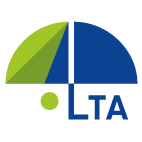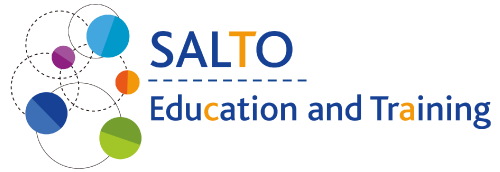Inclusive Career Guidance: Supporting Students with Special Needs

Main Info
TCA Description
“Inclusive Career Guidance: Supporting Students with Special Needs" is the second TCA event within LTA “Enhancing Inclusion through Guidance” which aims to emphasize the role of career guidance as an inclusion mechanism.
The TCA will focus on perspectives of inclusion and digitalisation in the context of career development, with particular attention to the career guidance needs and for supporting secondary education students (lower and upper levels, age 13-18) in discovering their potential, shaping their future, and achieving self-fulfilment. Additionally, the competencies and competence needs of professionals working with young people will be a key focus.
The event will gather career guidance practitioners from the School Education (SE) and Vocational Education and Training (VET) from various European countries.
This TCA will focus on the practical exploration of career guidance provision for students. Most of the event will be dedicated to giving participants the opportunity to engage in a series of interactive workshops. These workshops will cover a select number of best practices and tools, including digital ones, allowing participants to gain hands-on experience with the methods they can implement in their own contexts. To complement these sessions, keynote lectures will be held, offering a deeper theoretical framework. These lectures will address the value of inclusive education, the importance of diversity in the context of career development, and the specific needs of students in lower and upper secondary education. This combination of practical tools and theoretical insight will provide participants with a well-rounded approach to enhancing their career guidance services.
The expected results of the TCA follow a two-fold approach – focusing both on individual learning outcomes of participants and a joint outcome as a collective result.
By the end of the seminar, participants will:
- Understand the value of inclusive education and the importance of diversity in the context of career development;
- Be familiar with the needs of students in lower and upper secondary education;
- Learn effective practices, including digital tools, to prevent school dropout and enrich their methods to support this target group.
Overall expectations include:
- Practical solutions and best practice exchange to support professionals in Estonia in preparing for the reform extending the compulsory education age.
- Increased competencies among participants in preventing school dropout.
- An expanded and strengthened professional network to foster collaboration and development in career guidance.
Additionally, the exchange will serve as a platform to discuss and summarise future perspectives on inclusion and digitalisation in career development.
Participants are expected to arrive in Tallinn by the morning of 11th June to ensure they can join the seminar's official start at 14:00 EEA. Departure from the seminar venue is possible from 15:00 EEA on 13th June at the earliest. The organisers will provide accommodation for two nights (11th and 12th June), with check-out on the morning of 13th June.
Partners and participants
This TCA is for career guidance practitioners - professionals who support secondary education students (lower and upper levels, age 13 - 19) in identifying their capacities, competences and interests. They help students: to make meaningful educational, training and occupational decisions; and to manage their individual life paths in learning, work and other settings in which these capacities and competences are learned and/or used. Depending on the national context, this role may be carried out by school counsellors, teachers, educators, or other practitioners providing career guidance within the secondary education (SE) and vocational education and training (VET) sectors or career professionals in public employment services. The TCA does not cover basic career guidance competencies but builds on participants' existing expertise, enhancing skills in inclusion and digitalisation while offering practical tools to expand their methods.
Pending booked places
Accepted places
TCA Participant Application
Long-term Activity Info
This LTA will be dedicated to the development of career guidance and counselling (CGC) activities and tools for practitioners working in educational institutions and organisations. The main goal is to emphasize the role of career guidance as an inclusion mechanism, as well as to promote digital resources available to career guidance practitioners.
Considering that career guidance is recognized as a powerful tool for supporting students from vulnerable groups in developing the skills needed in the labour market, as well as a mechanism to prevent early school leaving, career guidance has a valuable impact on enhancing the inclusion of students from those groups. Through training, workshops and similar activities, LTA will aim to equip practitioners with the knowledge and skills to provide guidance that is context-sensitive, needs-oriented and addresses different challenges. By emphasizing the value of diverse role models, tailored support, and culturally responsive practices, the long-term project will seek to foster an inclusive approach that provides all individuals with equal access to information and meaningful career opportunities.
Furthermore, using digital resources as tools in career guidance can make the provision of guidance services more effective, efficient, and equitable. An inclusive digital environment considers different needs and abilities and enables more students to access the CGC services and use digital technology regardless of background or circumstances.
According to the data from the SALTO platform, since 2018, 10 single TCA events on the topic of career counseling have been organized or planned (between 1 and 3 per year), with many sending partners at each of those events. More than a third were focused on inclusion. This reflects the existence of common needs and the continued interest of National Agencies in the topic. To gather these National Agencies around a common LTA would enable a strategic approach to the organization of TCAs on the topic of CGC, as well as the exchange of knowledge and experiences among the event organizers. Such cooperation would provide a TCA offer that is coordinated regarding activities’ goals, topics, target groups, as well as a balanced event calendar.
The exchange of knowledge within the LTA would enable TCAs to be better tailored to meet the real needs of practitioners, with an additional benefit of monitoring and measuring the achievement of common goals.
Some of the National Agencies are as well homes to national Euroguidance centers, which are a significant resource of knowledge in the CGC field. It is an exceptional opportunity to build bridges between different E+ networks, E+ tools and parts of the program, from which all parties will benefit.
.
LTA will provide involved NAs with a framework that will enable the continuous and coordinated organisation of TCAs on the topic of CGC in the next 3 years.
As a first step, partner NAs would map out the needs of CGC practitioners in their countries, which would inform and shape the activities organised within the LTA.
Later on, a transnational TCA should be organised at least once a year (hosted in Serbia in 2024 and possibly in different partner countries in the following years). The annual event should support CGC practitioners in better understanding the different ways of developing CGC services for students from vulnerable groups through the exchange of good practices and promotion of useful digital tools.
LTA will also offer flexibility and encourage partner NAs to plan and organise different formats of national and transnational activities related to the main theme and goals, regarding their national contexts, needs and capacities. In this way, LTA will offer a series of TCA activities that will enable training and networking for career practitioners.
TCA activities within this LTA can include:
- Seminars and workshops, to develop competences of participants,
- Study visits, to enhance the exchange of good practices,
- Tool fairs, to promote the digital tools and other resources which could be implemented in different educational contexts,
- Etc.
Additionally, a common strategy for monitoring and measuring the impact of activities organised within the LTA would be established.
- Promoting social inclusion and equality in career guidance throughout the education system.
- Improving competences of CGC practitioners to provide inclusive services in the education sector.
- Increasing number of projects concerning CGC, with inclusion as a priority in the Erasmus+ programme.
- NAs involved in the LTA gaining better understanding of the needs of CGC practitioners at the national and European level


